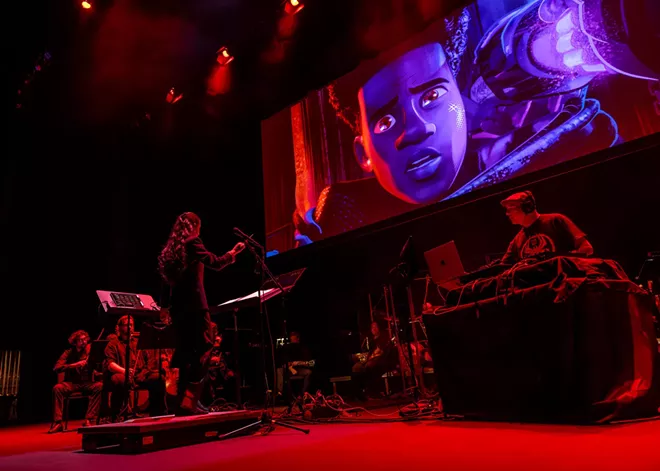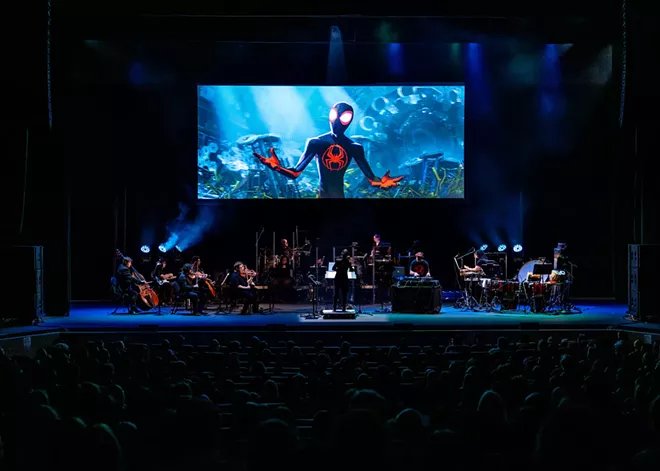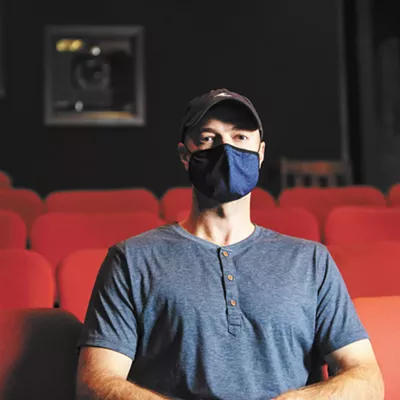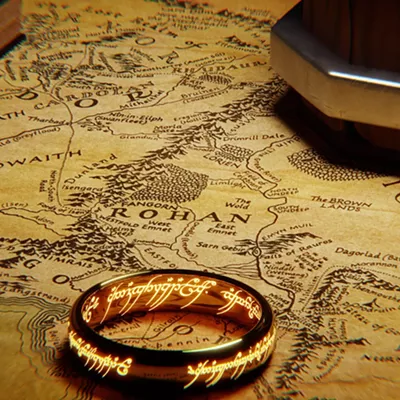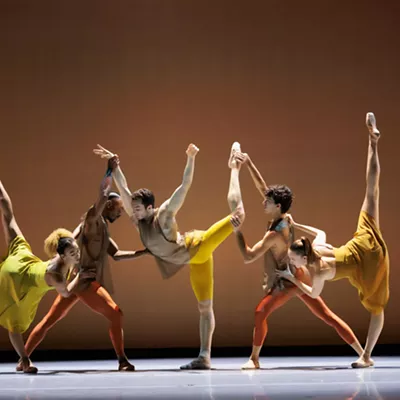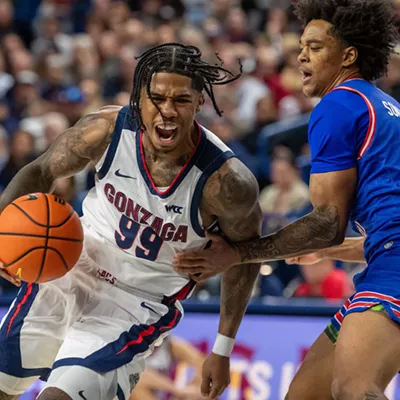To say that 2018's Oscar-winning Spider-Man: Into the Spider-Verse and its 2023 sequel Across the Spider-Verse were revolutionary in the field of animation might be an understatement.
The superhero movies chronicling the multiverse-hopping adventures of Miles Morales, Gwen Stacy and their ragtag group of Spider-Folks blend together a myriad of different art and animation styles with a rapid remix manner that instantly won over audiences and critics alike. The films are the most marvelous visual treats in the Marvel Comics filmography.
With that much eye candy, it's easy to overlook how much composer Daniel Pemberton absolutely nails the scores in both films. Blending traditional orchestration with hip-hop and rock elements, the score helps bring to life Miles' Brooklyn street artist vibe and Gwen's rock drummer aesthetics while also maximizing the films' quieter, emotionally resonant scenes and the scintillation of all the web-slinging action.
We now have a chance to fully take in Spider-Man: Across the Spider-Verse's musical thrills, as a touring production is bringing the film to First Interstate Center for the Arts on Oct. 16 for a screening accompanied by full live orchestration under the direction of conductor Shelbie Rassler.
To get hyped for all the Spider-action, we chatted with Rassler about the film's unique score, conducting a DJ, and John Williams.
INLANDER: Because the Spider-Verse movies are such overwhelming visual experiences on first watch, do you feel like the complexity of the scores is something that takes multiple viewings to appreciate?
RASSLER: As a composer and conductor myself, I'm always maybe a little bit more hyper-aware of the music than most. So I knew right out of the gate, when I first saw those movies that the scores are really, really something special. They really drive the films forward in the energy and the excitement of the adventure that all these characters are going through. And I also love that the score sort of reflects and mirrors a lot of the animation and the visuals going on, because there are so many different styles of animation that kind of all come together to create this sort of collage and scrapbook of visuals. And I feel like in the music, that's true as well. There are tons of different styles and genres that are all brought together and create this cohesive film that really resonates.
What sets the Across the Spider-Verse score apart from other scores that folks might see an orchestra perform along with a film?
I think what's so unique about Daniel's score, aside from the different styles that are all coming together, is that this score actually also features a live scratch DJ, which you don't often see with an orchestra. So, that's something that's really special to this film. We have the power and the energy sort of coming from all of the instrumentalists, and we also have scratching throughout the whole show that's bringing sort of a contemporary element to an art form that has been around for so long. And so it's really special to kind of see the interaction between the orchestra and the DJ, and how all of those different genres are filtered through the orchestra and sort of remixed almost with the DJ. There's also a lot of great guitar solos and some rock elements with our amazing drummer and electric bassist and everything. So it's really a bit of everything. And it's very exciting for the audience to get to experience that.
Does having those elements like the DJ change how you conduct?
It definitely adds another element than what I might be more used to just conducting an orchestra in a concert hall. Because the film is playing on the screen right behind the orchestra, there's a level of precision and a synchronicity that needs to happen to make sure that we're hitting exactly all of the precise moments that need to be lined up to the millisecond. So it's definitely keeping track of a lot of moving parts. But we have different tools and different signals and things like that to help keep everything on the same train and going in the same direction.
I feel like when we're watching movies as kids it often takes a while to realize music isn't just naturally in movies and there's actually a composed score. Was there a time as a kid when you had that "a-ha" moment and realized films have scores?
Yeah, definitely. I think that the first time that I sort of had that "a-ha moment" was probably with the movie E.T. with John Williams' score. It's so powerful and so perfect for the film. And that was the first time where I really understood just the concept of having themes and different sorts of musical elements that you know might be attached to certain characters or certain events or emotions, even. These different motifs that occur. That was probably the first time that I really took a step further into analyzing what was going on. And then I became really, really interested in film scoring. ♦
Spider-Man: Across the Spider-Verse Live in Concert • Wed, Oct. 16 at 7 pm • $39-$88 • All ages • First Interstate Center for the Arts • 334 W. Spokane Fall Blvd. • firstinterstatecenter.org

